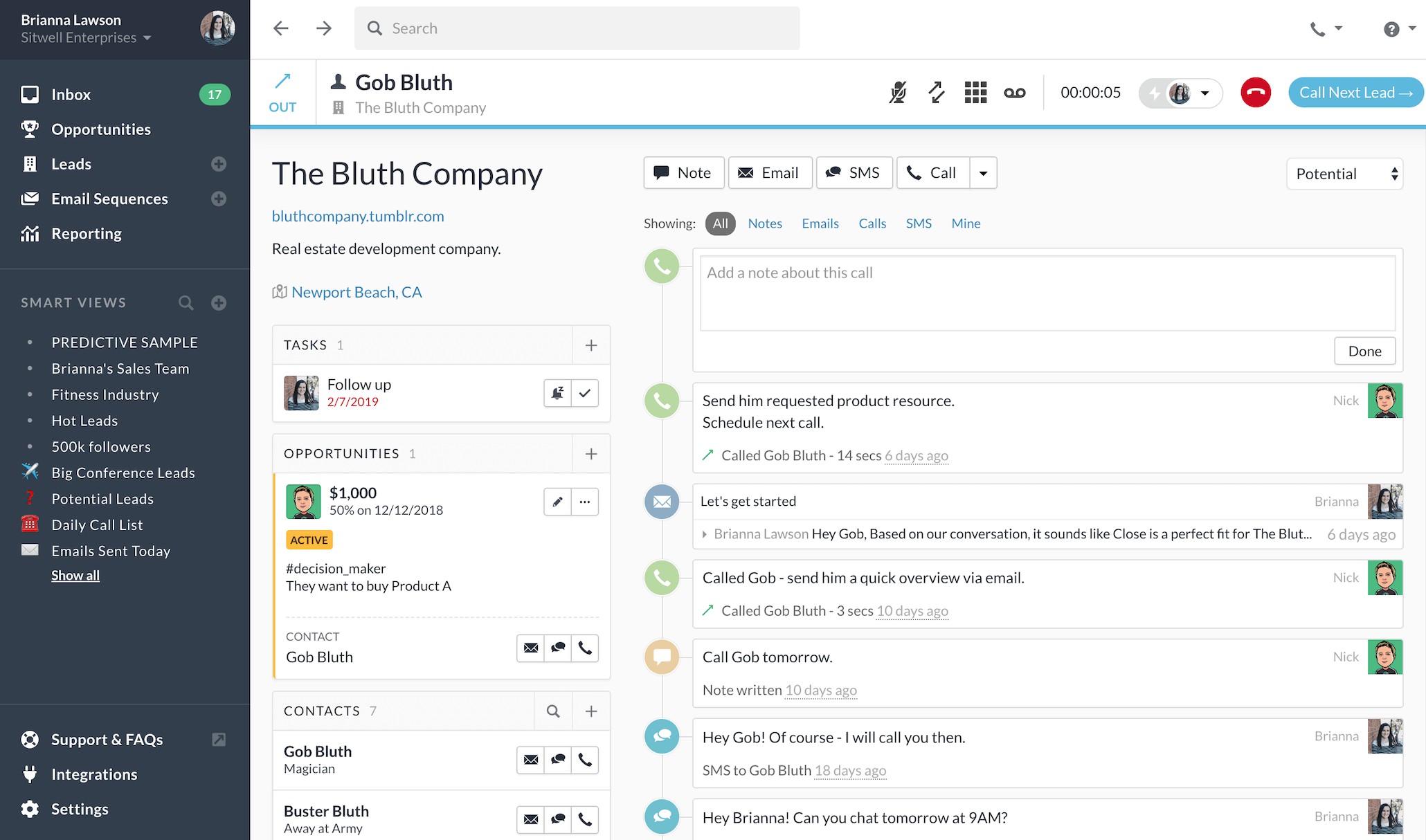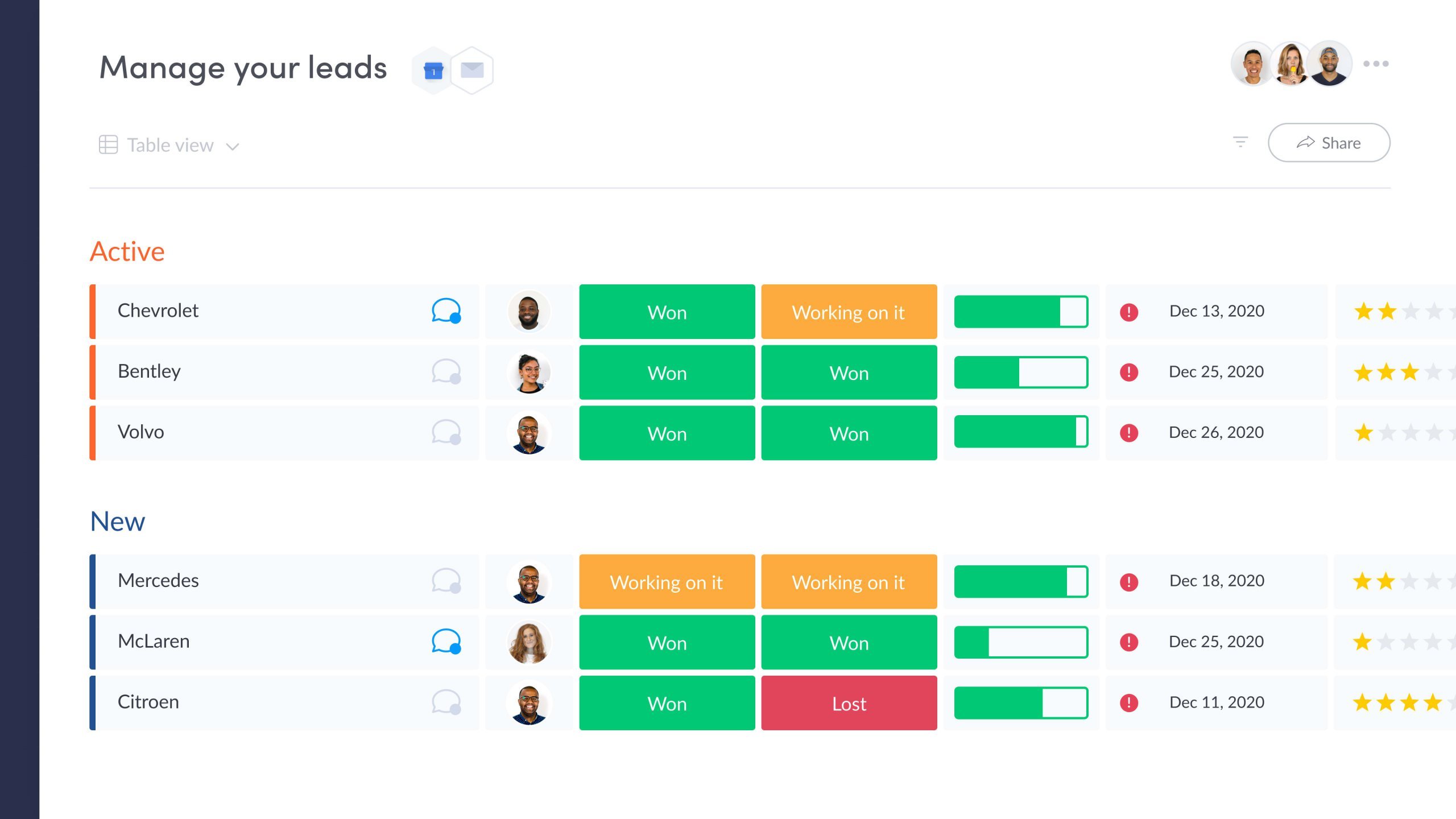Crm software small businesses – CRM software for small businesses is an indispensable tool that can help streamline operations, improve customer relationships, and drive growth. With its ability to manage customer data, automate tasks, and provide valuable insights, CRM software can empower small businesses to compete effectively in today’s competitive market.
In this comprehensive guide, we will explore the key features and benefits of CRM software for small businesses, provide guidance on choosing the right software for your needs, and offer tips for successful implementation and use.
Understanding CRM Software for Small Businesses: Crm Software Small Businesses
Customer Relationship Management (CRM) software is a powerful tool that can help small businesses streamline their operations, improve customer relationships, and grow their business. CRM software provides a centralized platform for managing all of your customer data, including contact information, sales history, and support interactions.
Key Features and Benefits of CRM Software
Some of the key features and benefits of CRM software for small businesses include:
- Centralized customer data:CRM software provides a single, centralized location for all of your customer data, making it easy to track customer interactions and manage relationships.
- Improved customer service:CRM software can help you improve customer service by providing you with a complete view of each customer’s history, including their contact information, sales history, and support interactions. This information can help you resolve customer issues quickly and efficiently.
- Increased sales:CRM software can help you increase sales by providing you with tools to track your sales pipeline and identify opportunities. You can also use CRM software to automate marketing and sales tasks, such as sending out email campaigns and scheduling follow-up appointments.
- Improved marketing:CRM software can help you improve your marketing efforts by providing you with insights into your customers’ behavior. You can use this information to create targeted marketing campaigns that are more likely to reach and engage your customers.
- Increased efficiency:CRM software can help you increase efficiency by automating many of the tasks that you would otherwise have to do manually. This can free up your time to focus on more important things, such as growing your business.
Types of CRM Software
There are two main types of CRM software: cloud-based and on-premise.
Cloud-based CRM softwareis hosted on the internet, which means that you can access it from anywhere with an internet connection. Cloud-based CRM software is typically more affordable than on-premise CRM software, and it is also easier to set up and maintain.
On-premise CRM softwareis installed on your own servers. On-premise CRM software is typically more expensive than cloud-based CRM software, but it gives you more control over your data.
Choosing the Right CRM Software

Choosing the right CRM software for a small business is crucial for optimizing customer relationships and driving business growth. Several key factors should be considered to ensure the software aligns with the business’s specific needs and objectives.
To assist small businesses in making informed decisions, we have compiled a table comparing the features and pricing of popular CRM software options. Additionally, we provide valuable tips to help businesses evaluate and select the best CRM software for their unique requirements.
Factors to Consider When Choosing CRM Software
- Business Size and Industry:Consider the size and industry of the business to determine the necessary features and functionalities.
- Integration with Existing Systems:Ensure compatibility with existing business systems, such as accounting software and email platforms.
- Scalability:Choose software that can grow with the business and accommodate future expansion.
- User-Friendliness:Select software that is easy to use and navigate, ensuring smooth adoption by employees.
- Support and Training:Consider the availability of technical support and training resources to assist with implementation and ongoing use.
- Budget:Determine the budget for CRM software, considering both upfront costs and ongoing subscription fees.
CRM Software Comparison Table
| Software | Features | Pricing |
|---|---|---|
| Salesforce Essentials | – Contact and lead management
|
$25 per user/month |
| HubSpot CRM | – Free CRM
|
$45 per user/month for paid plans |
| Zoho CRM | – Contact and lead management
|
$12 per user/month |
Tips for Evaluating and Selecting CRM Software
- Identify Business Needs:Clearly define the business’s specific requirements for CRM software.
- Research and Compare Options:Explore different CRM software options and compare their features, pricing, and customer reviews.
- Request Demos and Free Trials:Experience the software firsthand through demos and free trials to assess its functionality and user-friendliness.
- Consider Scalability and Integration:Ensure the software can accommodate future growth and integrate seamlessly with existing systems.
- Evaluate Support and Training:Determine the availability and quality of technical support and training resources provided by the software vendor.
- Make a Decision:Carefully consider all factors and select the CRM software that best aligns with the business’s needs and budget.
Implementing and Using CRM Software

Implementing and using CRM software can transform how small businesses manage customer relationships. By following best practices and addressing challenges, businesses can maximize the benefits of CRM.
Steps Involved in Implementing CRM Software, Crm software small businesses
- Define Business Objectives:Identify the specific goals and objectives you want to achieve with CRM software.
- Select the Right Software:Choose a CRM that aligns with your business needs, budget, and technical capabilities.
- Prepare Data:Clean and organize existing customer data before importing it into the CRM system.
- Configure the System:Customize the CRM to match your business processes and workflows.
- Train Users:Provide comprehensive training to ensure employees understand and use the CRM effectively.
- Monitor and Evaluate:Regularly track key metrics and make adjustments as needed to optimize CRM performance.
Benefits of CRM Software for Small Businesses

Implementing a customer relationship management (CRM) software can bring significant advantages to small businesses. By organizing and automating customer interactions, CRM software can enhance sales, improve customer satisfaction, and reduce operating costs, leading to a positive return on investment (ROI).
Numerous case studies and testimonials demonstrate the benefits of CRM software for small businesses. For instance, a study by Nucleus Research found that companies using CRM software experience an average ROI of $8.71 for every $1 spent. Additionally, a survey by Salesforce revealed that 81% of small businesses reported increased sales after implementing a CRM system.
Increased Sales
- CRM software helps track customer interactions and preferences, enabling businesses to identify and target potential customers more effectively.
- By automating sales processes, CRM software reduces the time it takes to close deals, allowing sales teams to focus on higher-value activities.
- CRM software provides insights into customer behavior, helping businesses tailor their sales strategies to meet specific customer needs.
Improved Customer Satisfaction
- CRM software allows businesses to track customer interactions across multiple channels, ensuring consistent and personalized experiences.
- By providing a centralized platform for customer data, CRM software empowers support teams to resolve issues quickly and efficiently.
- CRM software helps businesses identify and address customer pain points, leading to increased customer satisfaction and loyalty.
Reduced Operating Costs
- CRM software automates many manual tasks, such as data entry and report generation, freeing up employees to focus on more strategic initiatives.
- By streamlining customer interactions, CRM software reduces the need for additional customer support staff.
- CRM software provides insights into customer behavior, helping businesses optimize their marketing campaigns and reduce wasted spending.
Tips for Getting Started with CRM Software

CRM software can be a powerful tool for small businesses, but it can also be daunting to get started. Here are a few tips to help you get up and running quickly and easily.
Choose the Right CRM Software
The first step is to choose the right CRM software for your business. There are many different options available, so it’s important to do your research and find one that meets your specific needs.
- Consider the size of your business.
- Think about your budget.
- Determine your specific needs.
- Read reviews from other small businesses.
Customize and Configure Your CRM Software
Once you’ve chosen a CRM software, you’ll need to customize and configure it to meet your specific needs. This includes setting up your contact fields, creating custom reports, and integrating your CRM with other business software.
- Create custom fields to track the information that’s important to your business.
- Create custom reports to track your progress and identify areas for improvement.
- Integrate your CRM with other business software, such as your accounting software or email marketing software.
Train Your Team on CRM Software
Once you’ve customized and configured your CRM software, you’ll need to train your team on how to use it. This is important to ensure that everyone is using the software correctly and getting the most out of it.
- Provide your team with training materials, such as user guides and tutorials.
- Schedule training sessions to go over the basics of the software.
- Encourage your team to ask questions and provide feedback.
Use Your CRM Software Regularly
The key to getting the most out of your CRM software is to use it regularly. Make sure that your team is entering data into the software on a regular basis and that you’re using the software to track your progress and identify areas for improvement.
- Set up a regular schedule for entering data into your CRM software.
- Use the software to track your progress towards your goals.
- Identify areas for improvement and make changes to your CRM software accordingly.
Resources and Tools
There are a number of resources and tools available to help small businesses successfully implement and use CRM software.
- CRM software vendors often offer training and support resources.
- There are a number of online forums and communities where small businesses can share tips and advice about using CRM software.
- There are a number of books and articles available about CRM software for small businesses.
Outcome Summary
By leveraging the power of CRM software, small businesses can unlock a wealth of opportunities for growth and success. With its ability to streamline operations, improve customer satisfaction, and drive sales, CRM software is an investment that can pay dividends for years to come.
 Lingkupruang.biz.id The Ultimate Guide to CRM Mastery
Lingkupruang.biz.id The Ultimate Guide to CRM Mastery